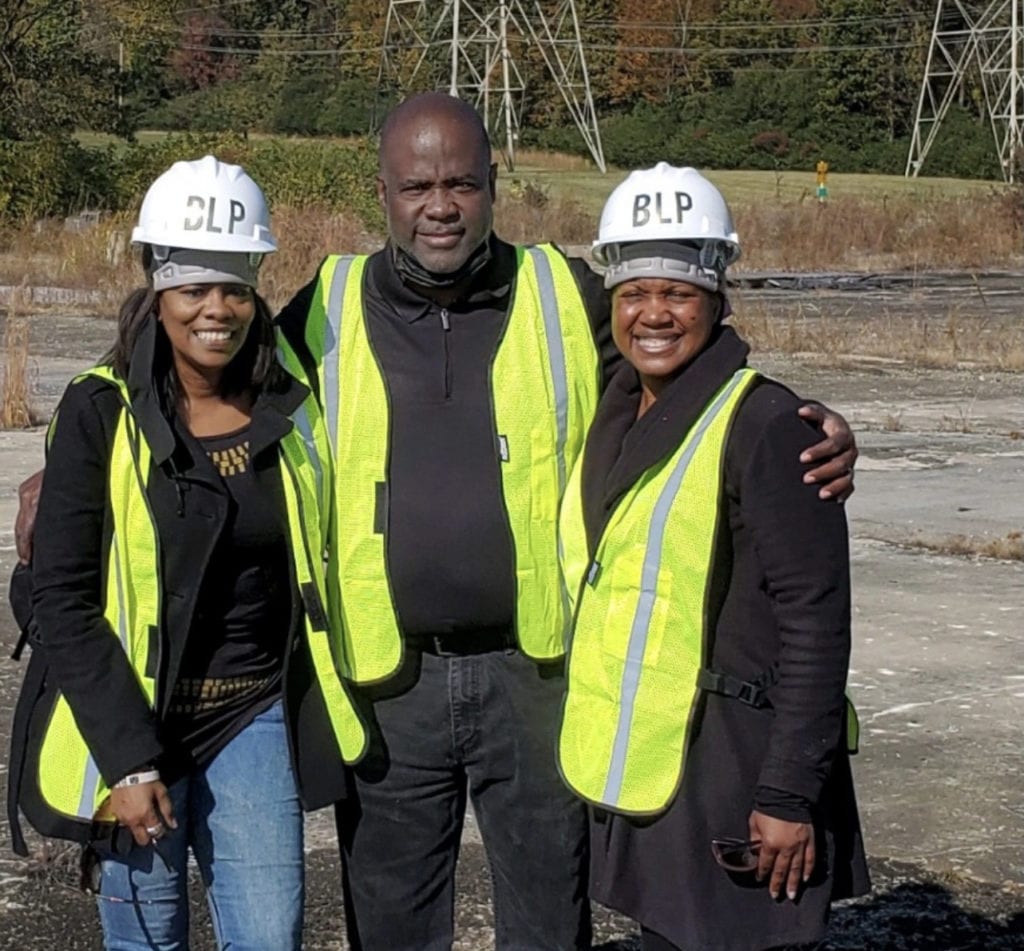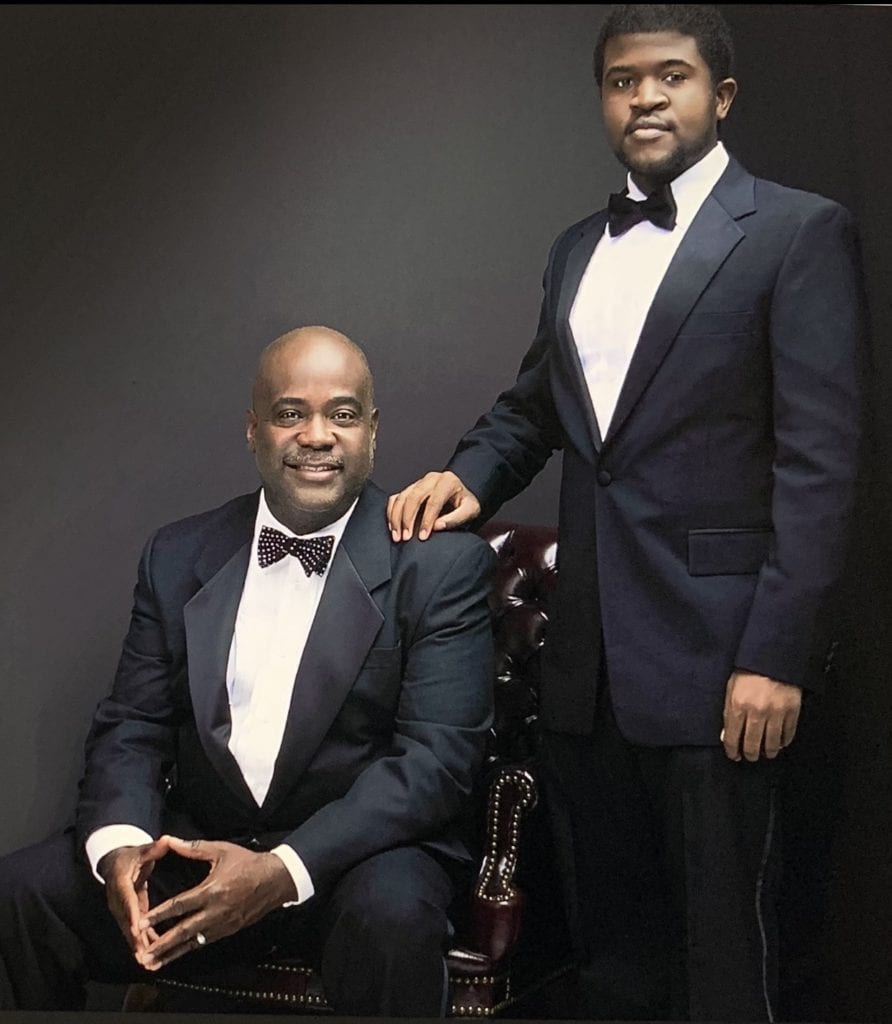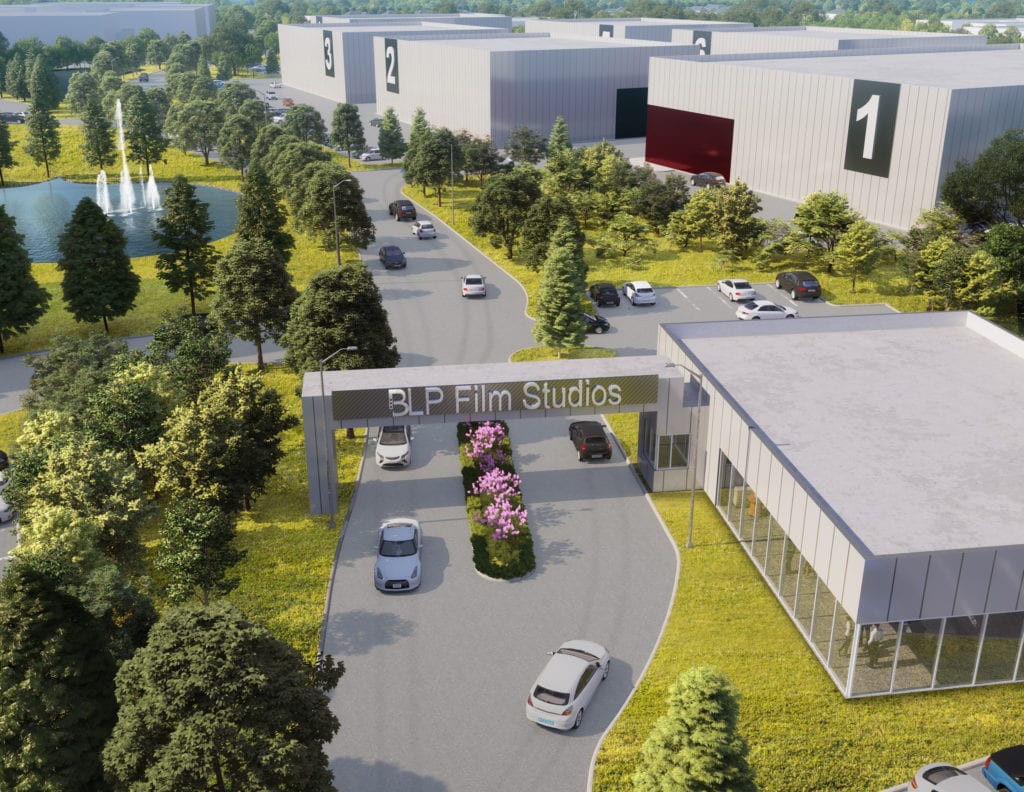Venturing to bring home to me the practicality of building an 85-acre movie campus owned by African Americans, Jason Farmer had me imagine telling – via a film – the story of The New Tri-State Defender.
“If I wanted to shoot the story about the Tri-State Defender, I can’t come down to your office for 10 days or 14 days and shoot,” he said. “I have to work around your schedule, maybe two or three o’clock in the morning, maybe two, three o’clock in the afternoon, and that may or may not fit with everything.”
The more practical thing is to come out to BLP Film Studios, take soundstage number two, go in and build out the Tri-State Defender offices, he said.
“Now you can shoot around the clock and you can tell the story about the Tri-State Defender, get in and out and get that project done. …Heretofore, Memphis has not had that capacity.”
That’s the path envisioned for Black Lens Productions (BLP) Film Studios by the founder/CEO. Farmer’s partners are Chief Financial Officer Carolyn Henry and Cecelia Barnes, general counsel. The inspiration is Farmer’s college-age son, Jason Farmer II, whose middle-school desire to be a creative in the film industry is the stuff of which, well, movies are made.
BLP Film Studios is for real. Farmer and crew have secured land in Whitehaven, gotten the OK from the Land Use Control Board, lined up public and private support and now are nailing down the finance details.

I had lots of questions, too many, in fact, for the time allotted me. Among the basics was one that drew this answer:
“We are currently on course to break ground … late fall of this year. …The complete build-out of the facility will take 24 to 30 months. It’s a phased project. So we can have some working facilities as early as this time next summer.”
I’d learned that Farmer, a seasoned business man with no previous movie-industry experience, had roots in the Foote Homes. I asked what he wanted to be as he grew up in that public housing development.
He mentally took me to 413 Vance (Ave.), Apt. C. in the shadows of Progressive Baptist Church. The funeral home that processed the remains of Dr. Martin Luther King Jr. after he was assassinated was right out the front door. His blue-collar, working-class family received commodities at Historic Clayborn Temple. Many of the striking sanitation workers of 1968 “lived in my neighborhood.”
Farmer’s mother worked security and did janitorial work for First Tennessee Bank. She brought home discarded law books from one of the firms in the building. Her son started to read them as he learned to read and set course to be an attorney.
“My mom instilled in us the ability to dream,” he said. “That was her greatest gift to us. Eventually, that got us out of the projects and we moved into the Whitehaven, Westwood area.”
That, he said, is the genesis of believing “that if you can dream and you put in the work, that you can make those dreams a reality.”
Farmer made it clear: he and the BLP team have put in the work. With his son continually saying he wanted to be in the film industry, Farmer and supporters started asking “questions out of desperation.” Research yielded the realization that there were just as many opportunities behind the camera and that behind-the-camera opportunities could effectuate opportunities in front of the lens.”

Jason Farmer, with his son, Jason Farmer II, whose middle-school-expressed desire to be a creative in the film industry is the inspiration that has led to a well-researched journey to anchor BLP Film Studios in Whitehaven to tell “our” stories. (Courtesy photo)
Now, he said, James Farmer II can “come back and fill out an application … we’ll have a place for him to come and do that.”
Collectively, Farmer has known his two key partners for about 30 years, meeting Barnes at Mt. Vernon Baptist Church-Westwood (she was about 10), and Barnes introducing him to Henry.
“I needed some people on that core team that I could depend on. Once I explained the vision to them and they saw it, they wanted to be a part of it.”
Henry, who is from Clarksdale, Mississippi, came to Memphis to attend Christian Brothers University. She fell in love with the city and still is 35 years later.
Barnes went to Duke University as an undergrad and then on to law school at Vanderbilt. Memphis afforded her opportunities not advanced elsewhere. She, too, loves Memphis.
“When Jason let me see what was going on with BLP and the potential to just impact this city, I left my job and I said, ‘I’m on board. I want to give back to this city what it has given to me.’ … So I am a Memphian, although I’m not a native.”
Projections are for about 1,000 jobs, with dual-enrollment discussions underway with local educational entities to create opportunities to expose high school students to the industry. Other talks involve engagements with the Workforce Investment Network, the Black Business Association and the state of Tennessee. Expanded entry points are needed “so that we’ll have locally-trained staff and crew … able to work on these (film) projects. …
“We will be very closely monitoring what’s going on in the participation level of Black people on this project, and we are committed that this will be a historical project in terms of the participation levels.”

Data from the Ralph J. Bunche Center for African American Studies at UCLA has shown that “Black and brown consumers buy the most tickets, they stream the most services, watch the most television, listen to the most radio, and they’re the most underserved,” Farmer said.
As members of this particular segment have become more savvy, “they’re now demanding more content that’s catered to their needs, which are our needs. … And then what we oftentimes shy away from (is) Memphis being the largest majority Black suburban area in the United States … So it becomes easy to come here and build out an ecosystem where we can support projects and we can help them meet their diversity, equity, and inclusion means.
“ At the same time, we can build economic prosperity in our communities while delivering a product that they need,” Farmer said.
“BLP Film Studios was born.”
(To learn more about BLP Film Studios, visit https://blpfilmstudios.com.)


